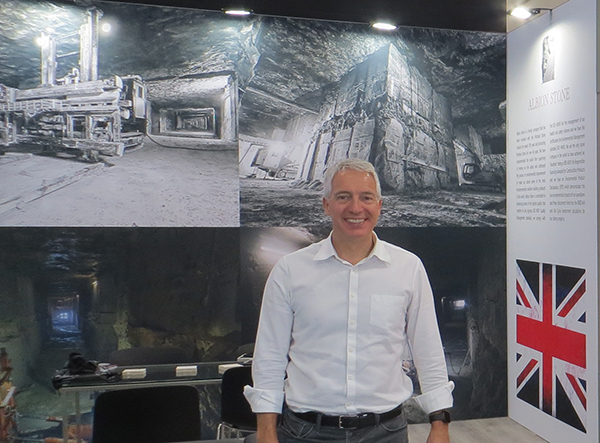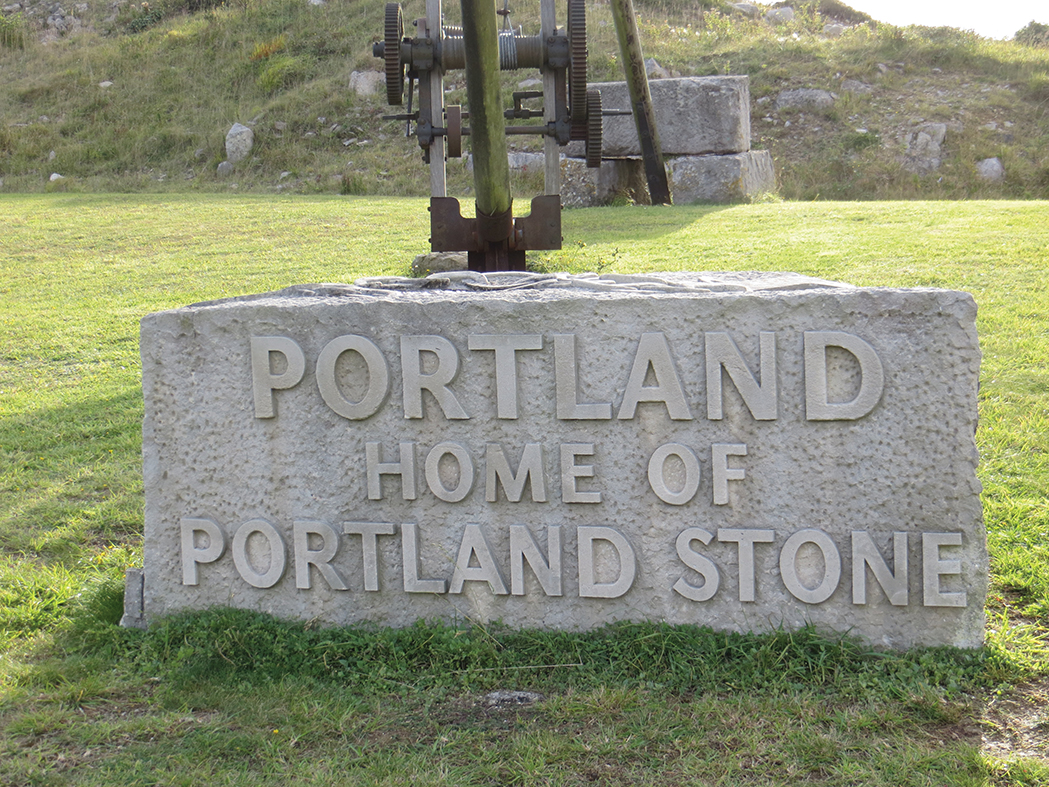Albion MD frustrated by government's negative response to extending geographical protection of products
For the love of God, please do something…
That’s the plea from Michael Poultney, the Managing Director of Portland limestone mining company Albion Stone, to his constituency MP.
What he wants something done about is geographic indications (GIs) for craft and industrial goods.
The European Union (and other parts of the world) use GIs to prevent manufacturers from outside a geographical area claiming their products come from that area in order to benefit from its reputation for the production of certain goods. Melton Mowbray Pork Pies are protected by this legislation, as is Champagne.
So far, in the UK and Europe that protection has been restricted to food and wine, but for many years (going back to before Brexit) the EU has been discussing extending GIs to include products other than food and wine.
The EU’s most recent study of GIs was published in 2020. It found that, on average, they doubled the value of a product when compared with similar products without certification. The study put an estimated annual sales value of GI-protected products at €74.76billion, with more than 20% coming from exports outside the European Union. In March 2022, 3,458 place-named products were registered. You can see them all here.
Extending GIs to non-food and drink products in Europe has been a tortuously slow process (and it is not concluded yet). It was being discussed at the turn of the millennium but gained momentum in 2014 when the EU opened a public consultation on the subject. That was, of course, before the 2016 Brexit referendum.
Stone Federation, the Minerals Products Association and English Stone Forum joined other organisations in Europe, including the pan-European EuroRoc of which Stone Federation GB is a member, as well as individual quarry operators and Natural Stone Specialist magazine in contributing to the public consultation by making the case for protecting the geographical names of stones such as Portland, Bath and Cotswold in the UK and many others across Europe. (You can read reports from the time here.)
As a producer of Portland limestone, which very specifically comes from the Dorset island of Portland, Michael Poultney was always a keen advocate of GIs and remains so.
The point of GIs is to protect the reputations of identifiable geographical areas for the production of specific products – in this case, stone – especially against products imported from other parts of the world. So, for example, a stone from India could not be called Portland stone.
With the extension of GIs in the EU to non-food and wine products starting to look imminent, Michael Poultney wrote, via his constituency MP, to George Freeman, Minister for Science, Research & Innovation, in August last year asking for the UK to adopt non-food GIs.
With the various ousting of Prime Ministers and Chancellors last year, and the subsequent frequent re-shuffling of ministerial jobs, the reply from the Minister, via the Member of Parliament for South Dorset constituency, Richard Drax, did not reach Michael Poultney until December.
When it did, it elicited the response from Michael at the top of this article. He says it "displays a breathtaking lack of understanding about the issues".
You can read the full reply from the Minister in the PDF below. It includes this sentence: “ln the absence of evidence showing any deficiencies in the current system, the UK's policy position remains to utilise trade marks.”
In Europe there were MEPs who also argued that trade marks were sufficient to protect products, but most concluded that GIs are better protectors of geographical intellectual rights, not least because a trade mark cannot be used to stop others using a place name. If they could, everywhere would be trade-marked and nobody would be able to use place names.
As Michael put it in his response to the office of his constituency MP: “Putting it really simply… you cannot get a trade mark on Portland Stone. We need the GI legislation that the EU are completing otherwise the UK will become a dumping ground for cheap and dangerous fakes.”
He has the backing for his cause of the Mineral Products Association (MPA), which has a dimension stone product group to which many of the leading UK producers, including Albion Stone, belong.
Jon Pritchard, Chief Executive of the Mineral Products Association, told NSS: “The Mineral Products Association understands the concerns this issue raises for natural stone producers in the UK and intends to take this up with the relevant government department to ensure that the interests of all our member companies are properly understood and appropriately protected.”


